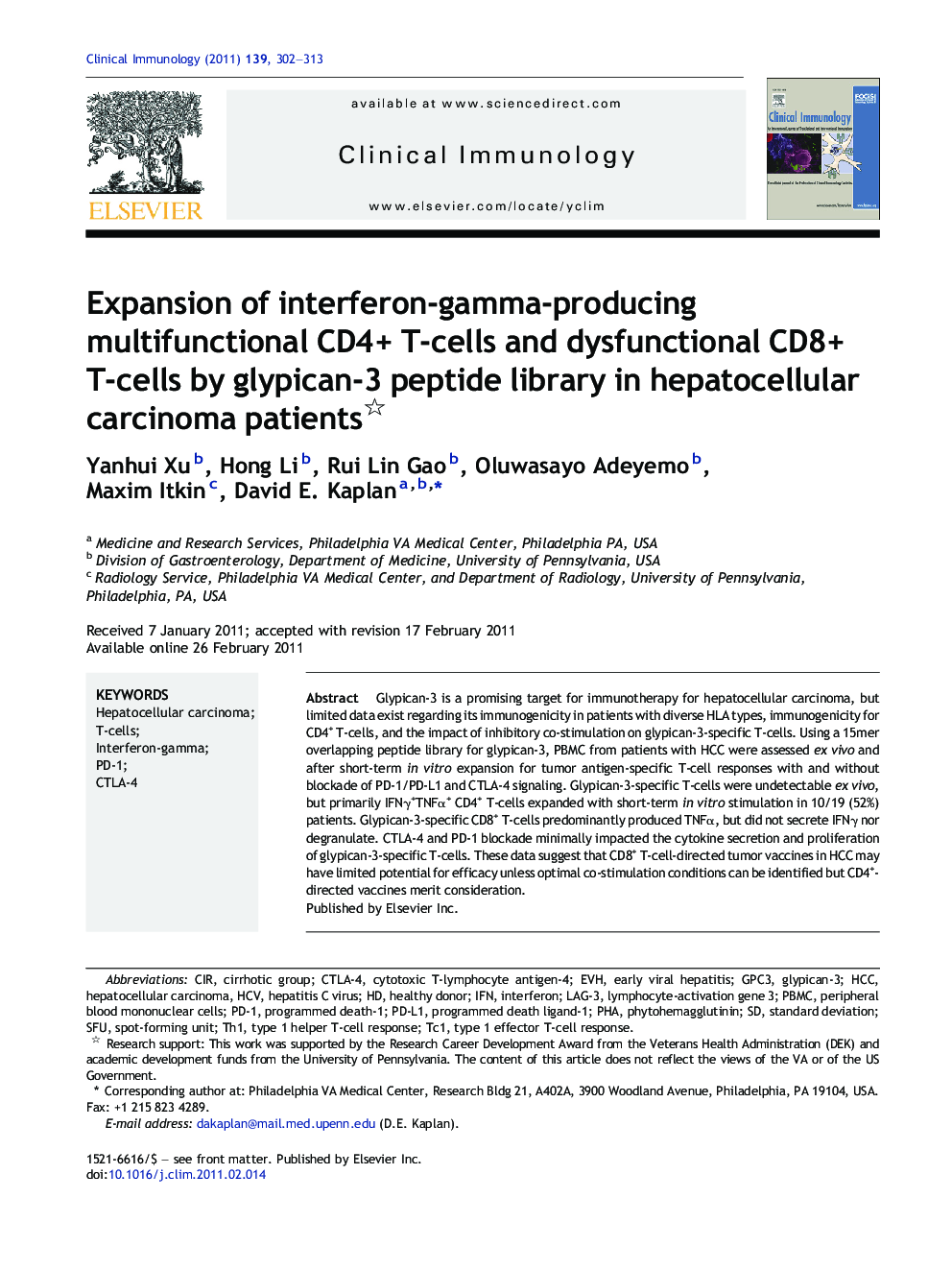| Article ID | Journal | Published Year | Pages | File Type |
|---|---|---|---|---|
| 3257383 | Clinical Immunology | 2011 | 12 Pages |
Glypican-3 is a promising target for immunotherapy for hepatocellular carcinoma, but limited data exist regarding its immunogenicity in patients with diverse HLA types, immunogenicity for CD4+ T-cells, and the impact of inhibitory co-stimulation on glypican-3-specific T-cells. Using a 15mer overlapping peptide library for glypican-3, PBMC from patients with HCC were assessed ex vivo and after short-term in vitro expansion for tumor antigen-specific T-cell responses with and without blockade of PD-1/PD-L1 and CTLA-4 signaling. Glypican-3-specific T-cells were undetectable ex vivo, but primarily IFNγ+TNFα+ CD4+ T-cells expanded with short-term in vitro stimulation in 10/19 (52%) patients. Glypican-3-specific CD8+ T-cells predominantly produced TNFα, but did not secrete IFNγ nor degranulate. CTLA-4 and PD-1 blockade minimally impacted the cytokine secretion and proliferation of glypican-3-specific T-cells. These data suggest that CD8+ T-cell-directed tumor vaccines in HCC may have limited potential for efficacy unless optimal co-stimulation conditions can be identified but CD4+-directed vaccines merit consideration.
